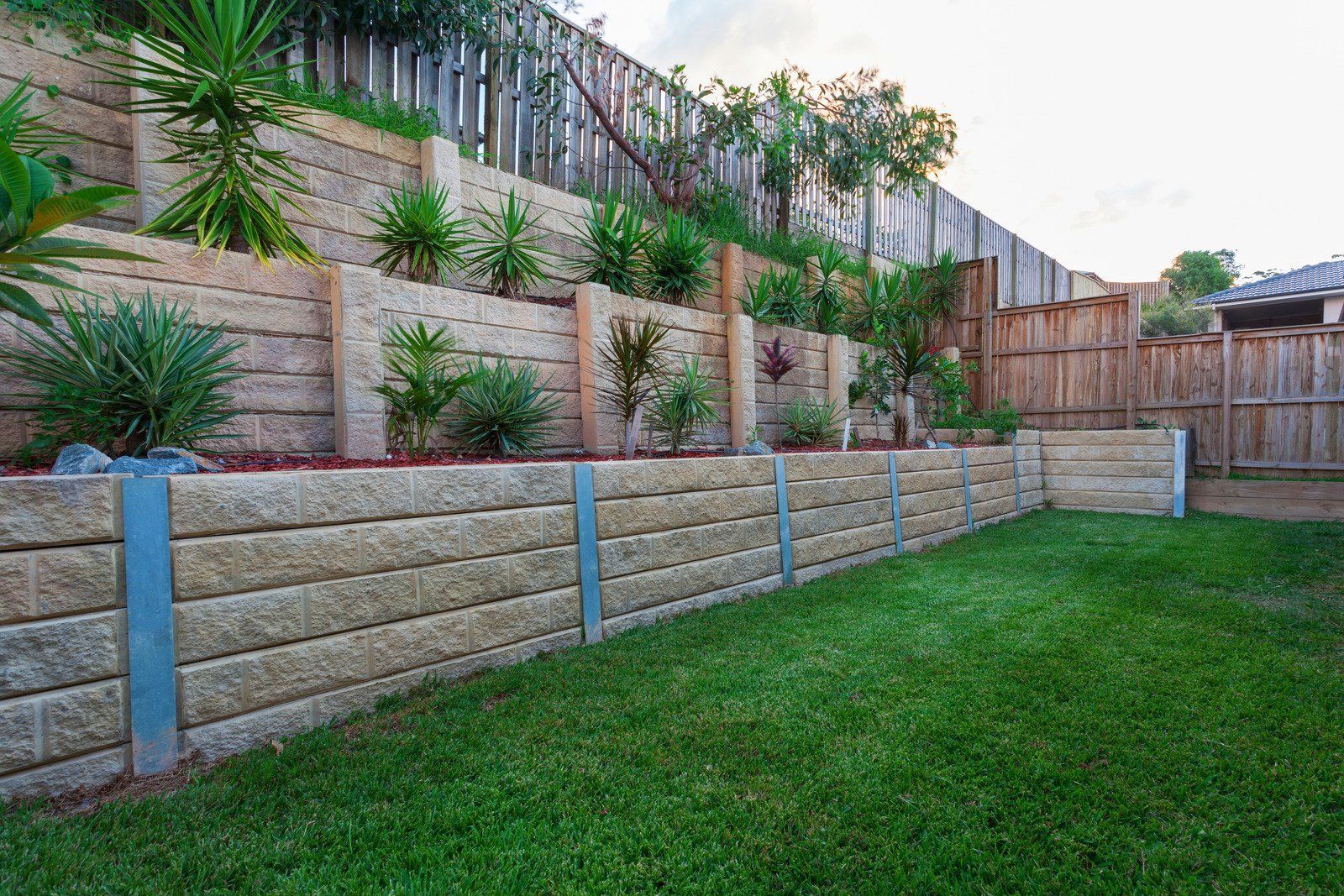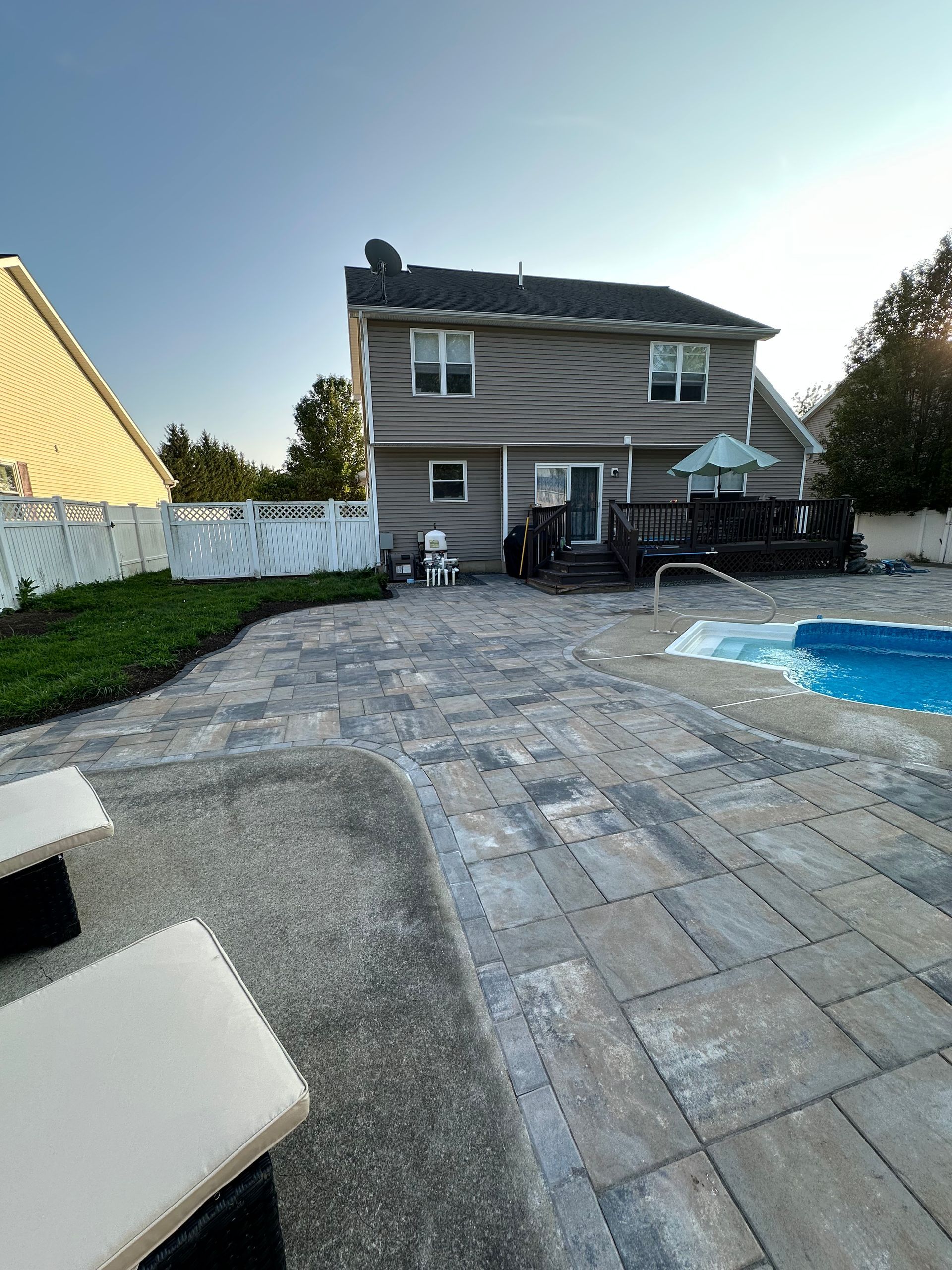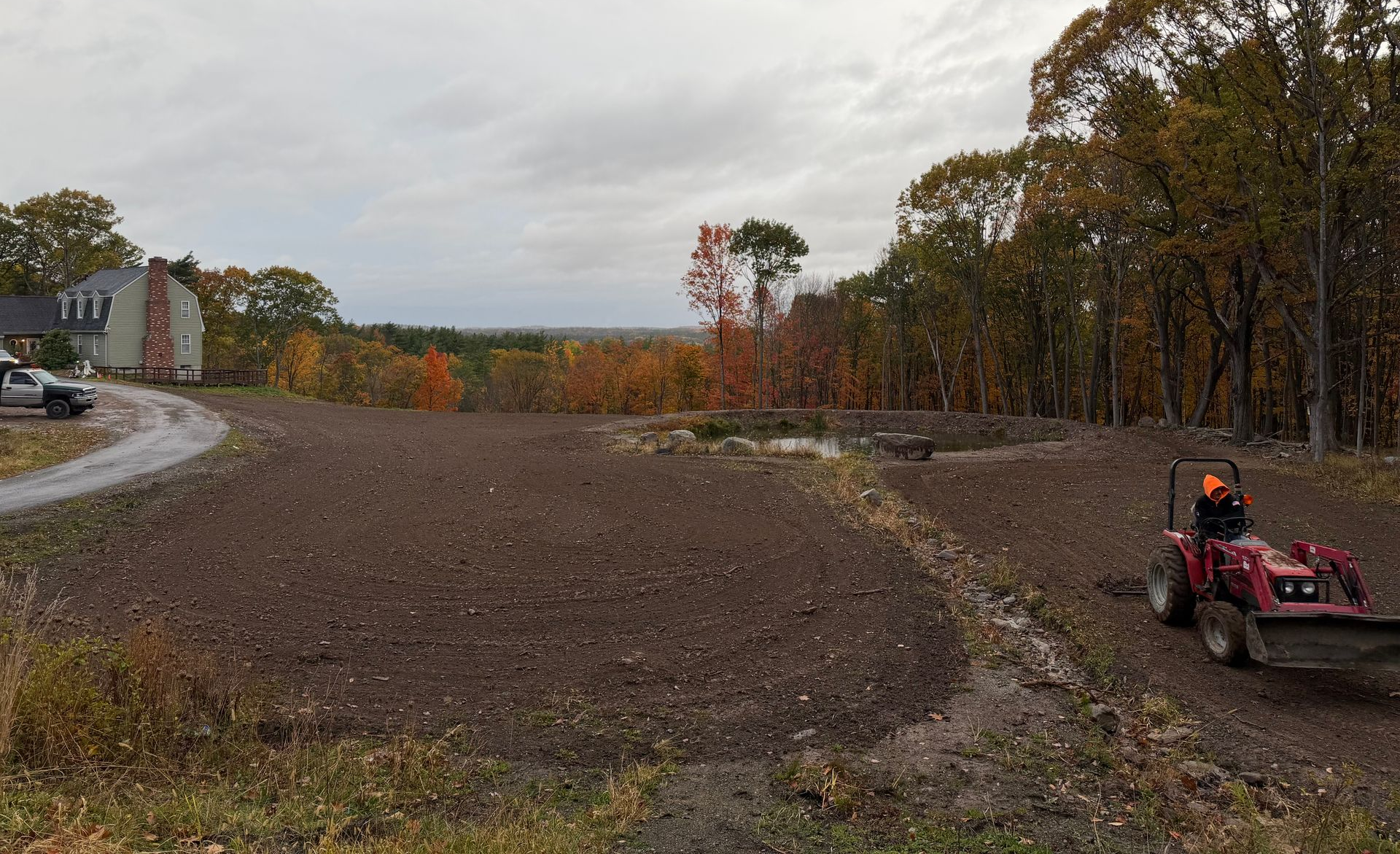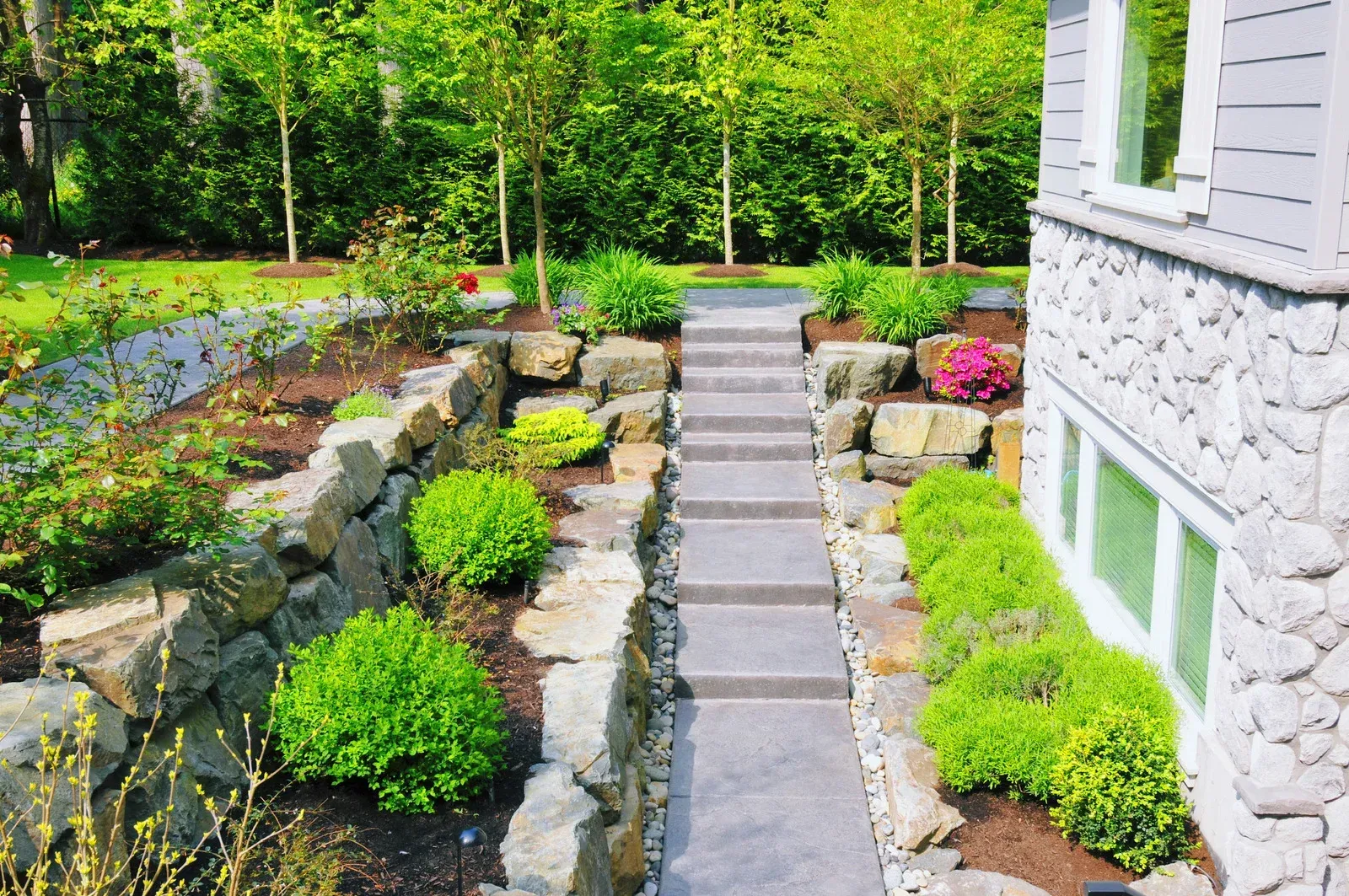Retaining Wall Installation in Clifton Park: A Homeowner's Guide
October 14, 2025

Retaining wall installation in Clifton Park requires understanding local soil conditions, proper drainage design, and compliance with setback requirements. Professional installation ensures your wall provides long-term slope stabilization while enhancing your property's functionality and appearance.
Clifton Park's rolling terrain and developed neighborhoods often present situations where retaining walls solve both functional and aesthetic challenges. From managing steep grades to creating usable outdoor spaces, the right retaining wall design can transform difficult areas of your property into valuable living space while preventing erosion and drainage issues.
When Do You Need a Retaining Wall?
Slope stabilization is the primary reason homeowners install retaining walls. If you have areas of your property where soil erosion is occurring, or steep grades that are difficult to maintain, a retaining wall can provide a permanent solution.
Property expansion projects often benefit from retaining walls that create level areas for patios, driveways, or additional lawn space. These walls can turn previously unusable steep areas into functional outdoor living spaces that add value to your home.
Drainage management is another important consideration. Properly designed retaining walls include drainage systems that prevent water buildup behind the wall, which could cause structural problems or flooding issues during heavy rainfall common in our area.
What Types of Retaining Walls Work Best Locally?
Material selection affects both appearance and long-term performance in Clifton Park's climate. Block systems, natural stone, and poured concrete each offer different advantages depending on your specific site conditions and aesthetic preferences.
Block systems provide consistent installation and work well for most residential applications. Natural stone offers a more traditional appearance that complements many home styles common in established neighborhoods. Poured concrete provides maximum strength for challenging situations but requires careful attention to appearance and drainage integration.
Height considerations are important for both structural integrity and local regulations. Walls over certain heights may require professional engineering and permits, while shorter walls can often be installed with standard construction practices. Professional contractors experienced with retaining walls and foundations can help determine the best approach for your specific situation.
How Do You Plan a Retaining Wall Project?
Site evaluation should include soil analysis, drainage patterns, and utility location marking. Professional contractors will assess these factors to recommend appropriate wall design and construction methods for your specific conditions.
Permit requirements vary depending on wall height, location relative to property lines, and local building codes. Experienced contractors familiar with Clifton Park's requirements can help navigate the permit process and ensure your project meets all necessary standards.
Timeline planning should account for weather conditions and any necessary excavation work. Retaining wall installation typically requires good weather conditions for proper base preparation and material handling, so timing can be important for project success.
Clifton Park's Specific Retaining Wall Considerations
Clifton Park's suburban development patterns often include properties with natural grade changes that make retaining walls both necessary and beneficial. The area's clay soils require specific attention to drainage design to prevent water-related structural issues.
Local building codes and homeowner association requirements may affect design choices, particularly in newer subdivisions where architectural consistency is important. Professional contractors understand these requirements and can suggest designs that meet both functional needs and community standards.
Winter freeze-thaw cycles in our area require proper construction techniques to ensure long-term wall stability. This includes adequate base preparation, proper backfill materials, and drainage systems designed to handle seasonal moisture variations without compromising wall integrity.
Pasinello Companies brings over 8 years of experience to retaining wall projects throughout the Capital Region, understanding both the technical requirements and aesthetic considerations important to Clifton Park homeowners. Our approach focuses on creating walls that provide reliable slope stabilization while enhancing your property's appearance and functionality. When you're ready to discuss retaining wall options for your property, contact us at 518-912-4888 for a comprehensive site evaluation and design consultation.




